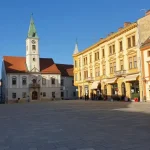Croatian consumers have forced Lidl to change its sales concept and take into account local customers’ preferences.
Lidl has more than 90 stores located throughout Croatia and four billion kunas in annual turnover. Even before the fall of Agrokor’s Konzum, it became the second largest retail chain in Croatia and the eight largest business in the country, reports Večernji List on August 20, 2017.
Business statistics recently published by the Financial Agency show that Lidl is the fastest-growing company in the country. For the past six years, Lidl has increased its sales by 10 to 20 percent a year, and it is the only company in the retail sector which has doubled its revenues since 2010, overtaking the second placed Plodine and closing in on Konzum.
Before the problems in Agrokor, Konzum had a turnover of a little less than 15 billion kunas a year, but it is likely that the significant part of the Konzum’s revenue has now been redirected to other retail chains, among which Lidl has been the most aggressive one.
Consultant Dragan Munjiza believes that Lidl, together with its sister company Kaufland, will sell more goods than Konzum in three years if that chain even manages to survive until 2019. Retail chains which sell their own brands are new for transition countries, where they have managed to take over rivals which are focused on more demanding consumers. Munjiza estimates that, without Velpro, Konzum’s revenues this year will fall to about 9 billion kunas.
For Croatian circumstances, Lidl is a business giant since its income is one and a half times higher than the annual GDP of Croatia. The Schwarz Group, which owns Lidl, is the fourth largest retail company in the world. Cheap brands were the backbone of Lidl’s market success in the 20th century, but this policy is changing due to what is happening in Croatia.
When Lidl came to Croatia in 2006, it was predicted that it might take up only about five percent of the market, but the Croatian Competition Agency says its market share now stands between 10 and 20 percent. It is in Croatia where the German giant has first moved away from its traditional policy of having cheap-looking and simply-equipped shops. In Zagreb, Medulin, Crikvenica and Krk, the company has recently opened its first better-equipped stores. The new concept of shop design is becoming the backbone of Lidl’s expansion throughout the world. Also, since they realise that Croatian consumers like to buy local products, the company began to offer more and more of them on its shelves.
“The economic crisis has affected consumer behaviour, which has become more price-sensitive, so discount retailers have become very attractive. We can expect that Lidl will continue to grow in Croatia, especially now that Konzum is in a specific situation and when there is turmoil in the market,” says Damir Anić from the Zagreb Institute of Economics.
Discount traders are becoming more and more popular in most transition countries, so even in Slovenia, they have won over one-third of the market.
Munjiza adds that Lidl’s store in Pula is the most profitable store in the whole group, whose business policies have been influenced more by Croatia than by any other country.
Translated from Večernji List.







